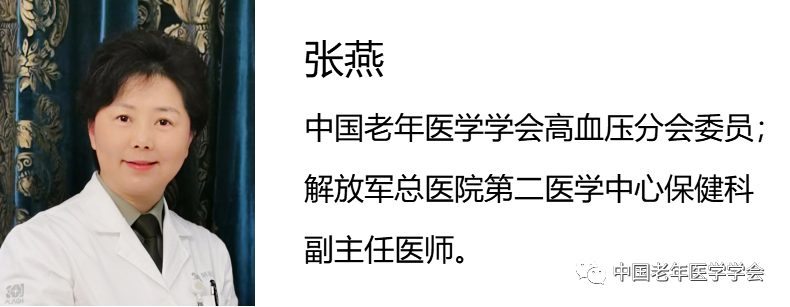Hypertension in the Elderly — — Let Me Answer Your Confusion (1)
Author's words:
Hypertension in the elderly has its particularity, and the "three rates" of hypertension awareness rate, treatment rate and control rate are still at a low level. We hope to share the experience of patients to answer questions for the majority of patients.
The clinic received a 60-something aunt, sat down and kept asking, "Doctor, you tell me, am I sick?" I don't have a headache, can eat and sleep, how can I say that I am high blood pressure? Should I take my medicine?"
In fact, the aunt's question highlights several problems in the diagnosis and treatment of hypertension in the elderly.
How much blood pressure counts as hypertension?
High blood pressure can be accompanied by uncomfortable symptoms such as headache, dizziness, fatigue, or no discomfort at all. Blood pressure measurement is the fundamental means and method to evaluate blood pressure level, diagnose hypertension and observe the effect of antihypertensive.
Age ≥65 years, without the use of antihypertensive drugs, three different blood pressure measurements on the same day, systolic blood pressure ≥140 mmHg and/or diastolic blood pressure ≥90 mmHg, can be diagnosed as hypertension in the elderly.
Therefore, I did not answer my aunt's first question immediately. First, I asked my aunt to sit down and asked her age, the situation of blood pressure measurement at home, whether there are elderly people with hypertension in the family, living and eating habits, and whether there are other diseases. After 10 minutes, my aunt slowly calmed down, and I measured my aunt's blood pressure with the mercury sphygmomanometer in the consulting room. 170/100mmHg, measured twice, are this value, aunt began to get excited again, "Doctor, I am at home is almost like this, sometimes to 180, but I am not uncomfortable ah, how is hypertension!"
I carefully explained the diagnosis of hypertension to my aunt and slowly told her that blood pressure measurement was the only standard, so, combined with my aunt's multiple measurement levels, the diagnosis of hypertension could be clear.
"Do I need to take medicine? If you need it, Doctor, give me the best and the most expensive medicine. One of my old sisters, she takes the imported medicine, give me that too." Aunt finally accepted the diagnosis of hypertension, but the question of treatment highlights the second elderly hypertension diagnosis and treatment problem.
What are the means of antihypertensive treatment? When do you start treatment?
Antihypertensive treatment of the elderly should be started under the guidance of doctors after comprehensive assessment of age, blood pressure level, combined diseases, target organ damage, etc. Antihypertensive treatment includes non-drug therapy and drug therapy. Recommended age ≥65 years, blood pressure ≥140/90mmHg, initiation of antihypertensive medication in conjunction with lifestyle intervention to reduce blood pressure to < 140/90mmHg.
Non-drug treatment, including healthy diet, regular exercise, smoking cessation, alcohol restriction, maintaining an ideal weight, improving sleep, pay attention to warmth and other measures, is a very important part of hypertension treatment. Reduce sodium intake and increase intake of potassium-rich foods; Aerobic physical exercise for no less than 30 minutes per day on no less than 5 days per week; Overweight body type appropriate control of diet and increase exercise to reduce weight; Sleep disorders improve sleep through sports drugs and other ways; Avoiding cold stimulation is the first step of self-protection and treatment for elderly patients with hypertension.
Drug treatment should follow the principles of small dose, long-term, combined, moderate and individualized, not expensive drugs, imported drugs must be good, suitable is the best.
Therefore, for the aunt's situation, drug treatment should be started on the basis of non-drug treatment. I recommended indapamide, a long-acting diuretic, and told my aunt to pay attention to monitoring blood pressure after the treatment began. Generally, the stable blood concentration was reached about 2 weeks after the treatment with long-acting drugs. If it is still not ideal, you can go to the doctor again to adjust the drug until the blood pressure is stable to the normal range.
Aunt finally solved in the end is not high blood pressure and need to take medicine doubts, and promised to listen to the doctor's words seriously treated.

(The opinions expressed are solely those of the author. Some pictures in this article are from the Internet, if there is infringement, please contact to delete)

